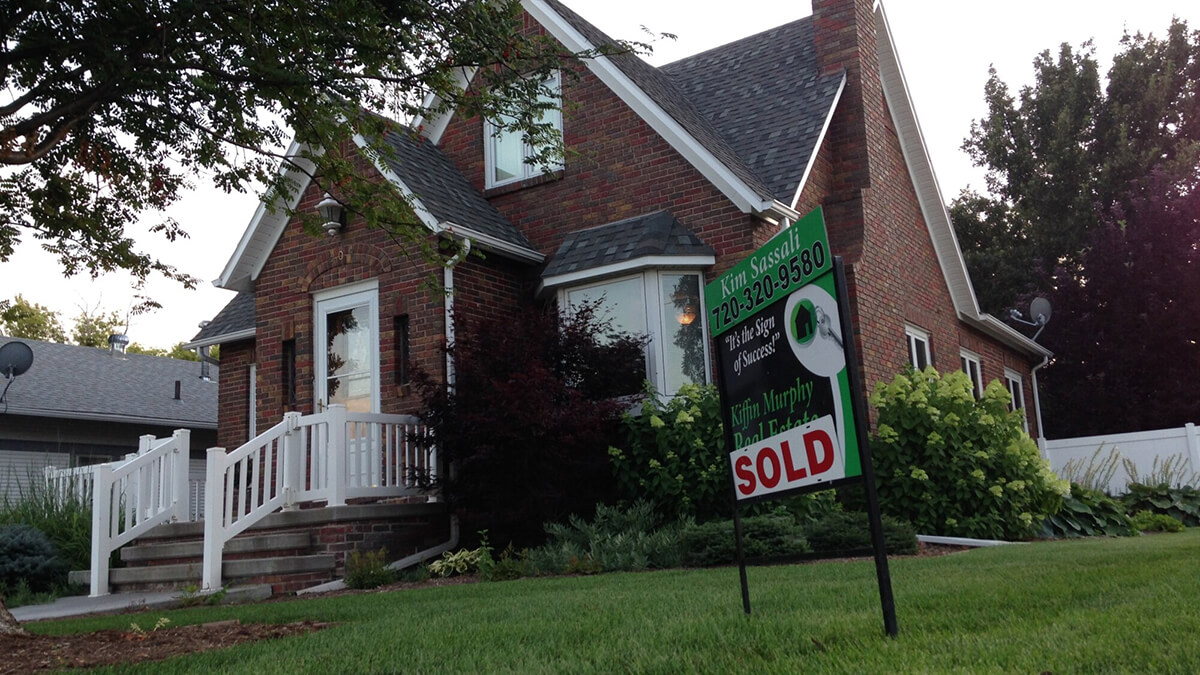When your mortgage lender starts calling or mailing letters, it can feel like the floor’s falling out from under you. If you’ve heard the term preforeclosure and aren’t sure what it means, or what to do next, you’re not alone. This stage is one of the last warning signs before foreclosure, but here’s the good news: it’s also one of your last, best chances to take control.
You’ll learn what preforeclosure really means, how it works, and the paths that can help you avoid losing your home or your peace of mind.
At iBuyer.com, we help homeowners skip the panic and sell on their own terms, with a fair, data-backed cash offer and no showings or last-minute drama. If you’re in preforeclosure or just behind on payments, you still have options, and we’re here to walk you through them.
Compare Cash Offers from Top Home Buyers. Delivered by Your Local iBuyer Certified Specialist.
One Expert, Multiple Offers, No Obligation.
What Is Preforeclosure?
- What Does Preforeclosure Mean?
- What Triggers the Preforeclosure Stage?
- What Happens During the Preforeclosure Process?
- Your Options to Avoid Foreclosure
- Can You Sell a Preforeclosure Home?
- Buying a House in Preforeclosure: What You Should Know
- Can Real Estate Investors Buy Preforeclosure Homes?
- Reilly’s Two Cents
- Selling a Home in Preforeclosure
- Frequently Asked Questions
What Does Preforeclosure Mean?
Preforeclosure is the period after a homeowner falls behind on their mortgage payments but before the property is legally foreclosed. It’s essentially a formal warning from the lender that the loan is in default, giving the homeowner one last window of opportunity to resolve the issue and avoid losing the home.
This stage usually begins after approximately 90 days of missed payments. At that point, the lender typically files a notice of default, a legal document recorded with the county that becomes part of the public record. Once filed, this notice alerts the homeowner that they are at risk of foreclosure if the loan is not brought current or another resolution isn’t reached.
Importantly, the homeowner still retains ownership during preforeclosure. This means there are still several potential solutions available, such as catching up on missed payments, negotiating with the lender, or selling the home to avoid foreclosure entirely. The length of the preforeclosure period varies depending on the state and the lender’s policies, but time is critical. Taking early action can significantly improve the outcome.
What Triggers the Preforeclosure Stage?
The preforeclosure stage is triggered when a homeowner fails to make their scheduled mortgage payments, typically for 90 consecutive days. This missed-payment timeline is crucial because most lenders won’t initiate formal action until at least three payments have been missed. At that point, the loan is considered to be in serious default.
The first major step a lender takes is issuing a notice of default. This legal document outlines how much is owed, what the borrower must do to correct the default, and the timeline for doing so. Once filed, it becomes part of the public record, signaling to third parties, including real estate investors and credit agencies, that the property is at risk of foreclosure.
It’s important to understand that lenders aren’t eager to foreclose. Foreclosure is costly and time-consuming for them, too. Most lenders are open to negotiating a resolution if the homeowner acts early. But if no action is taken, the process will move forward, often resulting in the property being scheduled for a foreclosure sale or auction.
The speed of this timeline depends on your mortgage agreement and your state’s foreclosure laws. In some cases, the entire process can unfold in a matter of months. That’s why it’s critical to take the notice of default seriously and act as soon as possible.
What Happens During the Preforeclosure Process?
Once preforeclosure begins, the clock starts ticking. You’re still the legal owner of the home, but you’re now on a timeline determined by your lender and state law. From this point forward, every decision you make, or don’t make, can influence the outcome.
Here’s what typically happens:
- Lender Files the Notice of Default
This document formally states that you’ve defaulted on your mortgage. It also outlines what you need to do to bring your loan current and how long you have to do it. - The Preforeclosure Becomes Public
Because the notice is recorded with your county, your situation is no longer private. Real estate investors, agents, and buyers may start reaching out with offers to purchase your home, often at a discount. - You’re Given Time to Act
During the preforeclosure period, you can pursue multiple solutions: catch up on payments, sell the home, request a loan modification, or explore other options. But time is limited. If no resolution is reached, the lender may schedule the home for auction.
This stage is emotionally and financially stressful, but it’s also your last real chance to avoid foreclosure. The sooner you take action, the more choices you’ll have. Many homeowners assume their only option is to walk away, but that’s far from the truth.
Tip: Visualize this stage as a funnel, at the top, you have multiple paths out. But the longer you wait, the fewer options remain.
Your Options to Avoid Foreclosure
Preforeclosure doesn’t always mean foreclosure. If you take action early, there are several paths that can help you keep your home, or exit with less damage to your credit and finances. Here are some of the most common options:
Loan Modification
This adjusts the terms of your mortgage to make it more affordable. Your lender might lower your interest rate, extend your loan term, or reduce your monthly payments.
Forbearance or Payment Deferral
A short-term solution that temporarily pauses or reduces your mortgage payments. It’s best for situations like job loss, medical emergencies, or other unexpected hardships.
Short Sale
You sell your home for less than what you owe, and your lender agrees to accept the proceeds. This allows you to avoid foreclosure but may have tax or credit consequences.
Deed in Lieu of Foreclosure
You voluntarily transfer ownership of your home back to the lender. It’s quicker and less damaging to your credit than foreclosure but isn’t available to everyone.
Selling the Home
If there’s equity in your home or a buyer willing to act fast, selling before foreclosure can protect your credit and help you move on with dignity.
Comparison Table: Preforeclosure Solutions
| Option | Best For | Pros | Cons | Credit Impact |
| Loan Modification | Long-term financial hardship | Keeps you in your home; lowers payments | Requires lender approval; may extend loan term | Moderate to Low |
| Forbearance / Deferral | Short-term income loss | Offers breathing room; keeps loan in good standing | Payments may be due later; not always available | Low (if managed well) |
| Short Sale | Home underwater in value | Stops foreclosure; may qualify for relocation aid | You lose the home; possible tax liability | Moderate |
| Deed in Lieu | Want to exit quickly | Avoids foreclosure sale; potentially less public | You lose the home; lender must agree | Moderate |
| Sell the Home | Have equity or time to market the property | Preserves credit; you control the terms | Needs a buyer quickly; may require repairs | Low to None |
Can You Sell a Preforeclosure Home?
Yes, in most cases, you can sell your home during the preforeclosure period. As long as the foreclosure sale hasn’t happened and you still legally own the property, you have the right to sell it, either to pay off the mortgage in full or through a short sale if you owe more than the home is worth.
Selling during preforeclosure can be a smart way to avoid long-term credit damage and walk away with more control over the process. If your home has equity, selling it may allow you to pay off the mortgage and even walk away with cash after closing. If there’s no equity, a short sale may still be possible with lender approval.
That said, time is critical. Most buyers require inspections, financing, and time to close. If you’re up against a tight foreclosure deadline, you’ll need a buyer who can move quickly, often with cash and no contingencies.
It’s also wise to consult a real estate agent experienced in distressed property sales. They can help you price the home realistically, communicate with your lender, and avoid predatory offers from investors trying to profit from your situation.
Selling before foreclosure isn’t easy, but it’s often a much better outcome than letting the process play out.
Buying a House in Preforeclosure: What You Should Know
Preforeclosure homes can attract buyers looking for a deal, but the process is far from simple. These properties haven’t yet reached auction, which means they’re still privately owned. That gives buyers a chance to negotiate directly with the homeowner or their agent, often before the property hits the open market.
However, buying a home in preforeclosure is not like buying a traditional listing. The process involves more due diligence, possible lender involvement, and sometimes emotional sellers. It can be rewarding, but only if you go in prepared.
Pros of Buying a Preforeclosure Home
- Potential for Below-Market Pricing
Sellers in distress may be willing to accept a lower offer to avoid foreclosure and protect their credit. - Less Competition Than Foreclosures
Unlike auctions, these properties aren’t always listed publicly, reducing buyer competition. - Room for Negotiation
Since the seller still owns the home, you may have more flexibility in price, closing terms, or repair negotiations. - Time for Inspections
In most cases, you can conduct a home inspection and negotiate repairs, something not possible at auction.
Cons of Buying a Preforeclosure Home
- Limited Time to Close
Sellers are often working against foreclosure deadlines, so buyers must act fast and be ready to close quickly. - Property Condition May Be Uncertain
Some homes are in disrepair or neglected, and sellers may not have funds to make improvements. - Emotional or Difficult Sellers
The situation can be sensitive. Sellers may be overwhelmed, uncooperative, or hesitant to negotiate. - Lender Approval May Be Required
If the sale is a short sale, the mortgage lender must agree to accept less than what’s owed. This can delay the process or kill the deal entirely.
Buying a preforeclosure home can be a win-win if handled professionally and respectfully, but it’s not a fit for every buyer. Work with a qualified real estate agent, and make sure you understand the risks and requirements before diving in.
Can Real Estate Investors Buy Preforeclosure Homes?
Yes, and many of them do. Real estate investors often monitor public records for preforeclosure properties, especially those with a filed notice of default. These homes can be appealing investment opportunities because they’re usually offered below market value and may involve motivated sellers looking for fast solutions.
Here’s how the process typically works:
Once the home appears in public records, investors may reach out directly to the homeowner, by mail, phone, or even knocking on the door. Some investors have agents or wholesalers contact the owner on their behalf. Their goal is to strike a deal before the property goes to auction.
Benefits of Working With Investors
- Speed: Investors often pay in cash and can close quickly, which is critical if the foreclosure sale is approaching.
- As-is Sales: Many are willing to buy the home without requiring repairs or updates.
- Less Hassle: For sellers who want to avoid showings or traditional real estate listing processes, this can feel like a relief.
Risks to Watch For
- Lowball Offers: Some investors offer far below the home’s actual value, betting on your urgency to sell fast.
- Pressure Tactics: Watch for anyone who urges you to sign paperwork without reading it or who makes promises that feel too good to be true.
- Lack of Representation: Investors are working for their own best interest, not yours. Consider speaking with a real estate agent or housing counselor before agreeing to anything.
Selling to an investor can be a valid path, just make sure you’re informed, protected, and not rushing into something under pressure.
Reilly’s Two Cents
I’ve worked with homeowners in preforeclosure, and I can tell you, it’s one of the toughest situations anyone can face. It’s not just about money. It’s about stress, shame, fear, and the pressure of making major decisions under a tight deadline. I’ve seen how overwhelming it feels when every letter from your lender sounds like a final notice and your phone won’t stop ringing with investor calls.
If you’re in that boat, here’s my honest advice:
Don’t freeze. Most people wait too long, hoping things will somehow work themselves out. But the earlier you act, the more power you have. Whether that means calling your lender, talking to a housing counselor, or listing the home, your options shrink the longer you wait.
Get clarity on your numbers. You need to know how much you owe, what your monthly payments are, and whether there’s equity in your home. This will help you understand whether selling, negotiating, or refinancing makes the most sense.
Talk to someone who’s been through it. Whether it’s a local real estate agent, a nonprofit housing counselor, or even a neighbor, don’t try to figure it out alone. This isn’t a time for pride; it’s a time for support and straight answers.
Protect yourself from predatory buyers. Some investors prey on people in crisis, offering lowball prices or asking you to sign confusing paperwork. Always read everything carefully, and don’t be afraid to say no if something feels off.
Preforeclosure is a hard season, but it doesn’t define you. With the right help and clear action, you can get through it, and land on your feet.
Selling a Home in Preforeclosure
Preforeclosure doesn’t mean eviction is right around the corner. It’s a serious stage, yes, but it’s also a final window of opportunity. You still own the home. You still have rights. And you still have time to make a decision that works for you and your family.
The key is to act early. Whether that means negotiating with your lender, listing the home, exploring a short sale, or asking for help, you are not powerless in this process. Inaction is what closes doors.
If selling feels like the best option, iBuyer.com offers a fast, transparent way to do it. You’ll get a fair cash offer backed by real market data, no showings, and a flexible close date, so you can move forward without the stress.
You’re not alone. Even in tough moments like these, you still have options, and the sooner you take that next step, the more choices you’ll have.
Instant Valuation, Confidential Deals with a Certified iBuyer.com Specialist.
Sell Smart, Sell Fast, Get Sold. No Obligations.
Frequently Asked Questions
Preforeclosure is the stage after a homeowner has missed several mortgage payments but before the property is foreclosed. It’s a warning period where the lender notifies the owner of default, giving them a chance to take action before the home goes to auction.
You’ll typically receive a notice of default from your lender. This document is also recorded with your county and becomes part of the public record. If you’ve missed about three months of payments, your home may already be in preforeclosure.
Preforeclosure is an early stage in the foreclosure process. The homeowner still owns the property and can take steps to resolve the issue. Foreclosure means the lender has taken legal action to reclaim and sell the home.
Yes. As long as the foreclosure sale hasn’t occurred, you can sell the home. If you have enough equity, you can sell to pay off the mortgage. If not, a short sale might be possible with lender approval.
Yes, missed mortgage payments and a recorded default notice will lower your credit score. However, avoiding foreclosure by resolving the issue or selling the home can limit the damage and help you recover faster.
Reilly Dzurick is a seasoned real estate agent at Get Land Florida, bringing over six years of industry experience to the vibrant Vero Beach market. She is known for her deep understanding of local real estate trends and her dedication to helping clients find their dream properties. Reilly’s journey in real estate is complemented by her academic background in Public Relations, Advertising, and Applied Communication from the University of North Florida. This unique combination of skills has enabled her to seamlessly blend traditional real estate practices with cutting-edge marketing strategies, ensuring her clients’ properties gain maximum visibility and sell quickly.
Reilly’s career began with a strong foundation in social media marketing and brand communications. These skills have proven invaluable in her real estate practice, allowing her to offer innovative marketing solutions that set her apart in the industry. Her exceptional ability to understand and meet clients’ needs has earned her a reputation for providing a smooth and satisfying transaction process. Reilly’s commitment to client satisfaction and her innovative approach have garnered her a loyal client base and numerous referrals, underscoring her success and dedication in the field.
Beyond her professional achievements, Reilly is passionate about the Vero Beach community. She enjoys helping newcomers discover the charm of this beautiful area and find their perfect home.
Outside of work, she loves exploring Florida’s stunning landscapes and spending quality time with her family. Reilly Dzurick’s combination of expertise, marketing savvy, and personal touch makes her a standout real estate agent in Vero Beach, Florida.




